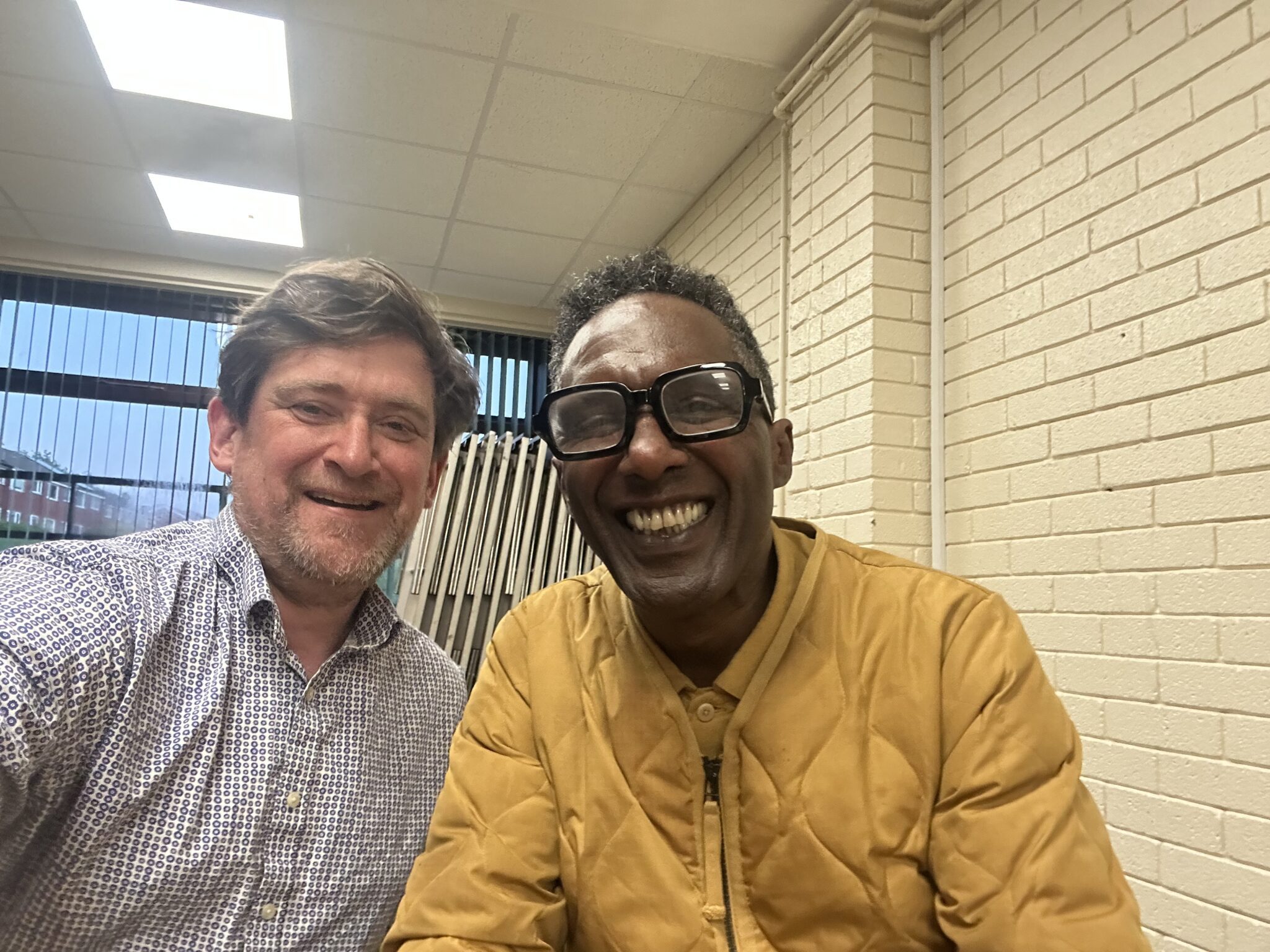
Last week as part of the Frodsham literature festival, I had the privilege of attending a poetry reading by Lemn Sissay, and it was an experience that stayed with me long after the final applause. Sissay, who has carved a place for himself as one of Britain’s most powerful and lyrical voices, was reading from his new book — Let the Light Pour In — a moving collection of quatrains, each written daily over the course of a year. Compact in form but expansive in meaning, each four-line poem revealed flashes of his soul — moments of joy, anger, reflection, humour, and survival.
Sissay’s delivery is more than performance; it’s communion. With his unmistakable voice — rich, rhythmic, and tinged with laughter and grief — he brings words to life in a way that transcends the page. What makes him all the more remarkable is his story: he didn’t begin writing poetry seriously until after the age of 19. He was not raised in an environment where literature or artistic expression were celebrated. In fact, his beginnings were marked by deep adversity.
Born in 1967 to an Ethiopian mother in Wigan, Sissay was placed in foster care as a baby. He was raised by a white British family who returned him to the care system when he was twelve. From that point until he left care at 17, he lived in a series of children’s homes. His identity — including even his real name — was hidden from him. It wasn’t until later that he reclaimed his birth name and began to explore and express his experiences through poetry.
That he became a poet — not just any poet, but one appointed official poet of the 2012 London Olympics, Chancellor of the University of Manchester, and MBE for services to literature — is testament to his resilience and determination. His life is a narrative of transformation, and he channels that journey into every syllable he writes.
The quatrains he shared at the reading were sometimes light, sometimes dark — always truthful. One explored the feeling of being overlooked; another, the sharp sweetness of a shared glance on a rainy day. Some were political, others spiritual. But all were stamped with that inimitable Sissay signature: hope forged from hardship. He specifically read poems relating to adoption reversing the stereotype of abandonment and also a poem often used at weddings and even funerals about love and letting go.
He spoke, too, about the daily discipline of writing a poem each morning — “a ritual,” he called it, “like brushing teeth, only for the soul.” It was a reminder that art is not always about grand inspiration but about the courage to keep showing up, especially on the days when it feels hardest.
What moved me most was not just the poetry, but the man behind it. Lemn Sissay is not simply a writer; he is a beacon for those whose beginnings are humble, fractured, or invisible. He proves that you do not have to come from privilege, from literary lineage, or from stability to have a voice that echoes across nations.
As someone who mentors aspiring professionals from underrepresented backgrounds, I left the reading reminded of why that work matters. Watching Lemn Sissay on stage — a man who reclaimed his name, his story, and his voice — I saw the embodiment of what is possible when talent is met with opportunity and belief.
To witness his poetry was to be reminded that our stories matter, even the ones written in sorrow, even the ones no one read at first. And in a world that often forgets or overlooks those on the margins, Lemn Sissay speaks — loudly, clearly, and beautifully — for us all.
